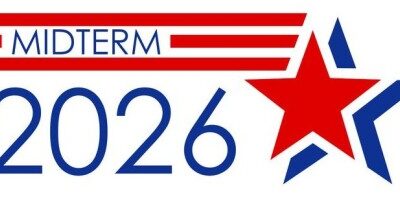Does the Electoral College Cause Lousy Climate Change Politics?
Dan and I have lamented the failure of the current national “debate” (if it be called that) to raise the issue of climate change, the greatest environmental threat that humanity has ever faced. But why is that? One can assign the blame to many institutions, and I have, but one might have been overlooked: the electoral college.
Both the Romney and Obama campaigns are criss-crossing swing states in an effort to extract that last little bit of commitment from uncommitted low-information voters. But what if they did not have to go to Ohio, Wisconsin, Florida, Iowa, Colorado, Virginia, and Nevada? Obama would go to California and New York and try to run up the totals there; Romney would head to his Confederate base and try to run up the score there. That could create a different dynamic.
Of course, it is far from sure that low-information swing voters in California and New York would care about climate. But it is certainly highly plausible that they would care about it a lot more than low-information swing voters in the states mentioned above. (Yes, I know: Florida voters should care about climate because they are the ones who will be underwater sooner. We’re not playing “shoulds”).
This is a testable hypothesis, I think: even deep Blue states are polled about issues, and it would be interesting to see what, say, the Field Poll says about low-information voters in California 10% to the left of median (aka the ones whom a Democratic candidate would try to scoop up to get a higher national popular vote count).
Obviously, the converse also figures to be true: a similarly-situated group of Texas voters might be even more hostile to doing something about climate than the median GOP position. But given how insane the Republican Party has gotten on this issue, it is hard to imagine it becoming more extreme on climate. You can’t get a temperature lower than absolute zero, which appears to be the Republican Party’s goal for the relevance of scientific knowledge to policy discussion.
In any event, here’s Schoolhouse Rock’s discussion of the matter. Not as good as some of the old classic songs, but then, the Electoral College isn’t as good as the Nineteenth Amendment, either.
[youtube http://www.youtube.com/watch?v=oyIFqf3XH24]
Reader Comments
6 Replies to “Does the Electoral College Cause Lousy Climate Change Politics?”
Comments are closed.






those states so rabid red for Romney will suffer the most horrifying and catastrophic effects from climate change just a few years from now- I hope they enjoy their hellish future- by then they will begin to stop being xenophobes, racists and homophobes.
those states so rabid red for Romney will suffer the most horrifying and catastrophic effects from climate change just a few years from now- I hope they enjoy their hellish future- by then they will begin to stop being xenophobes, racists and homophobes.
Presidential elections don’t have to be this way.
The National Popular Vote bill would guarantee the Presidency to the candidate who receives the most popular votes in all 50 states (and DC).
Every vote, everywhere, would be politically relevant and equal in presidential elections. No more distorting and divisive red and blue state maps. There would no longer be a handful of ‘battleground’ states where voters and policies are more important than those of the voters in 80% of the states that now are just ‘spectators’ and ignored after the conventions.
When the bill is enacted by states possessing a majority of the electoral votes– enough electoral votes to elect a President (270 of 538), all the electoral votes from the enacting states would be awarded to the presidential candidate who receives the most popular
votes in all 50 states and DC.
The presidential election system that we have today was not designed, anticipated, or favored by the Founding Fathers but, instead, is the product of decades of evolutionary change precipitated by the emergence of political parties and enactment by 48 states of winner-take-all laws, not mentioned, much less endorsed, in the Constitution.
The bill uses the power given to each state by the Founding Fathers in the Constitution to change how they award their electoral votes for President. Historically, virtually all of the major changes in the method of electing the President, including ending the requirement that only men who owned substantial property could vote and 48 current state-by-state winner-take-all laws, have come about by state legislative action.
In Gallup polls since 1944, only about 20% of the public has supported the current system of awarding all of a state’s electoral votes to the presidential candidate who receives the most votes in each separate state (with about 70% opposed and about 10% undecided). Support for a national popular vote is strong among Republicans, Democrats, and Independent voters, as well as every demographic group in virtually every state surveyed in recent polls in recent closely divided Battleground states: CO – 68%, FL – 78%, IA 75%, MI – 73%, MO – 70%, NH – 69%, NV – 72%, NM– 76%, NC – 74%, OH – 70%, PA – 78%, VA – 74%, and WI – 71%; in Small states (3 to 5 electoral votes): AK – 70%, DC – 76%, DE – 75%, ID – 77%, ME – 77%, MT – 72%, NE 74%, NH – 69%, NV – 72%, NM – 76%, OK – 81%, RI – 74%, SD – 71%, UT – 70%, VT – 75%, WV – 81%, and WY – 69%; in Southern and Border states: AR – 80%, KY- 80%, MS – 77%, MO – 70%, NC – 74%, OK – 81%, SC – 71%, TN – 83%, VA – 74%, and WV – 81%; and in other states polled: AZ – 67%, CA – 70%, CT – 74%, MA – 73%, MN – 75%, NY – 79%, OR – 76%, and WA – 77%. Americans believe that the candidate who receives the most votes should win.
The bill has passed 31 state legislative chambers in 21 small, medium, and large states. The bill has been enacted by 9 jurisdictions possessing 132 electoral votes – 49% of the 270 necessary to go into effect.
NationalPopularVote
Follow National Popular Vote on Facebook via NationalPopularVoteInc
Presidential elections don’t have to be this way.
The National Popular Vote bill would guarantee the Presidency to the candidate who receives the most popular votes in all 50 states (and DC).
Every vote, everywhere, would be politically relevant and equal in presidential elections. No more distorting and divisive red and blue state maps. There would no longer be a handful of ‘battleground’ states where voters and policies are more important than those of the voters in 80% of the states that now are just ‘spectators’ and ignored after the conventions.
When the bill is enacted by states possessing a majority of the electoral votes– enough electoral votes to elect a President (270 of 538), all the electoral votes from the enacting states would be awarded to the presidential candidate who receives the most popular
votes in all 50 states and DC.
The presidential election system that we have today was not designed, anticipated, or favored by the Founding Fathers but, instead, is the product of decades of evolutionary change precipitated by the emergence of political parties and enactment by 48 states of winner-take-all laws, not mentioned, much less endorsed, in the Constitution.
The bill uses the power given to each state by the Founding Fathers in the Constitution to change how they award their electoral votes for President. Historically, virtually all of the major changes in the method of electing the President, including ending the requirement that only men who owned substantial property could vote and 48 current state-by-state winner-take-all laws, have come about by state legislative action.
In Gallup polls since 1944, only about 20% of the public has supported the current system of awarding all of a state’s electoral votes to the presidential candidate who receives the most votes in each separate state (with about 70% opposed and about 10% undecided). Support for a national popular vote is strong among Republicans, Democrats, and Independent voters, as well as every demographic group in virtually every state surveyed in recent polls in recent closely divided Battleground states: CO – 68%, FL – 78%, IA 75%, MI – 73%, MO – 70%, NH – 69%, NV – 72%, NM– 76%, NC – 74%, OH – 70%, PA – 78%, VA – 74%, and WI – 71%; in Small states (3 to 5 electoral votes): AK – 70%, DC – 76%, DE – 75%, ID – 77%, ME – 77%, MT – 72%, NE 74%, NH – 69%, NV – 72%, NM – 76%, OK – 81%, RI – 74%, SD – 71%, UT – 70%, VT – 75%, WV – 81%, and WY – 69%; in Southern and Border states: AR – 80%, KY- 80%, MS – 77%, MO – 70%, NC – 74%, OK – 81%, SC – 71%, TN – 83%, VA – 74%, and WV – 81%; and in other states polled: AZ – 67%, CA – 70%, CT – 74%, MA – 73%, MN – 75%, NY – 79%, OR – 76%, and WA – 77%. Americans believe that the candidate who receives the most votes should win.
The bill has passed 31 state legislative chambers in 21 small, medium, and large states. The bill has been enacted by 9 jurisdictions possessing 132 electoral votes – 49% of the 270 necessary to go into effect.
NationalPopularVote
Follow National Popular Vote on Facebook via NationalPopularVoteInc
No. Your presidential vote is an extreemly minor, and locally meaningless, means of being a citizen. Landuse decisions which are the major cause of declines in natural services, like salmon collapse of San Mateo’s coast, are local- your city council, planning commission and school board are the major miscreants to address. Community Benefit Ageements that perform like Namibia’s Communal Conservancies are all in local capability and control.
The electoral college worked fine when NIxon passed what we consider environmental laws today.
No. Your presidential vote is an extreemly minor, and locally meaningless, means of being a citizen. Landuse decisions which are the major cause of declines in natural services, like salmon collapse of San Mateo’s coast, are local- your city council, planning commission and school board are the major miscreants to address. Community Benefit Ageements that perform like Namibia’s Communal Conservancies are all in local capability and control.
The electoral college worked fine when NIxon passed what we consider environmental laws today.